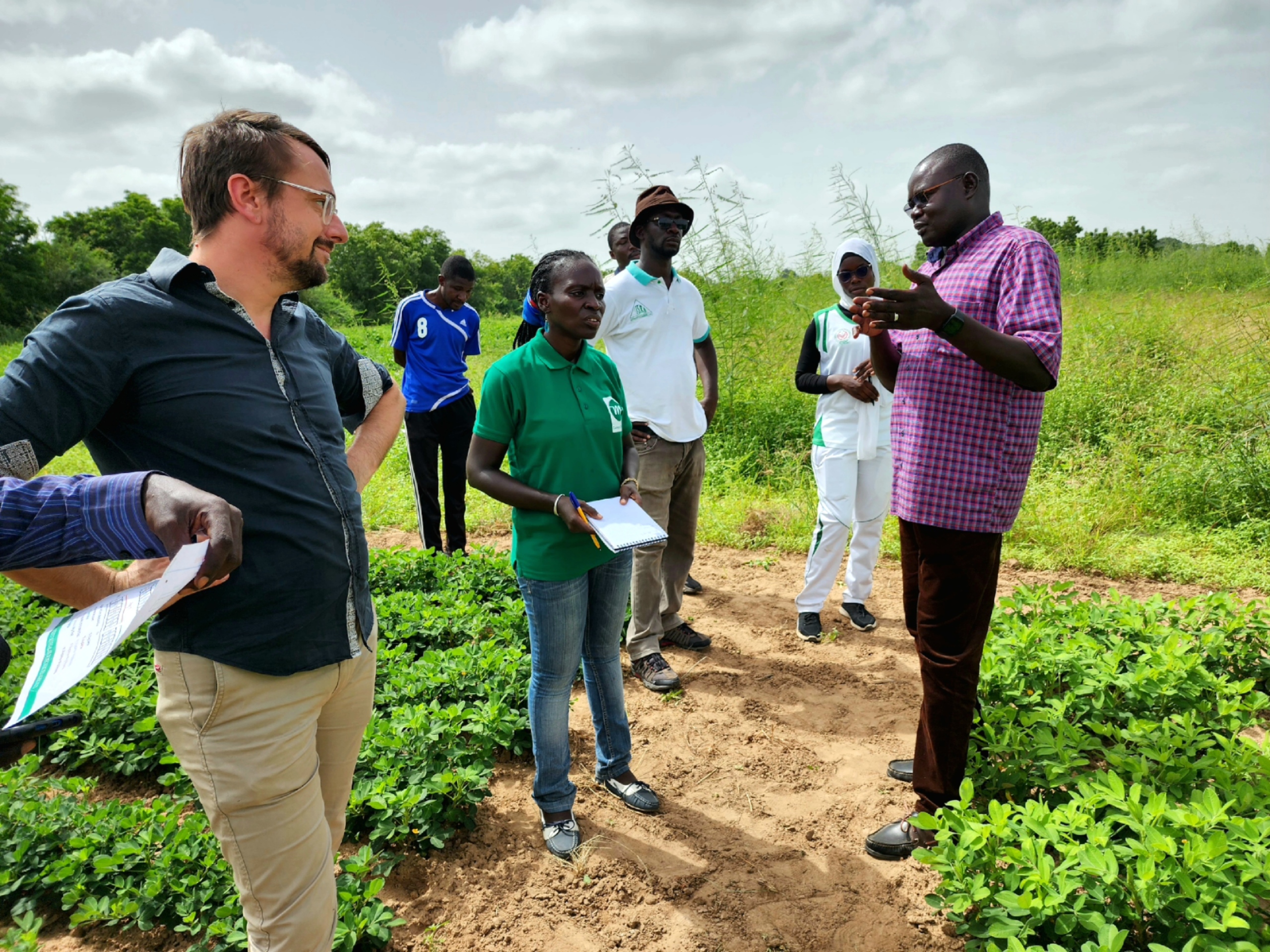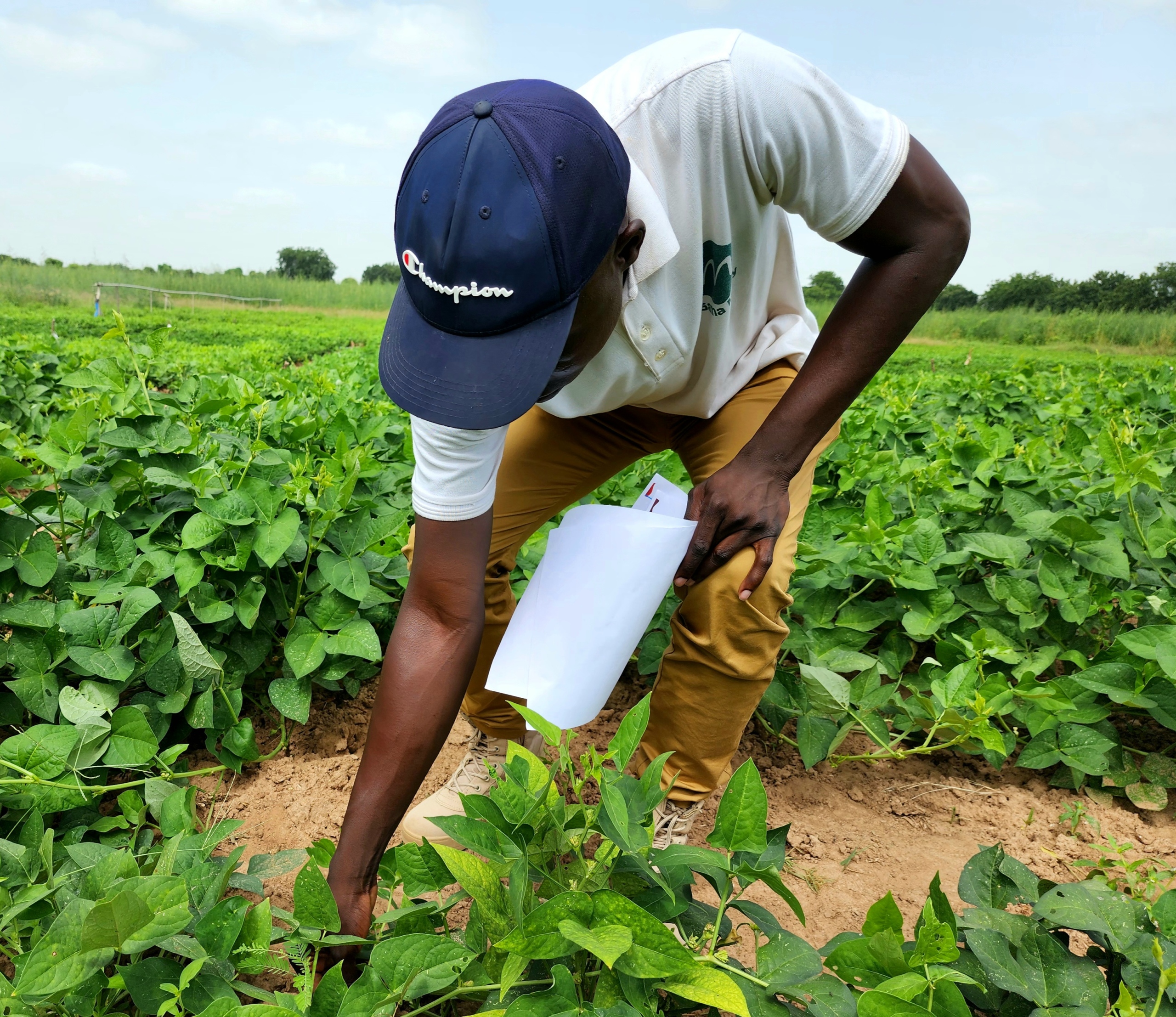myAgro Partners with the Institut Sénégalais de Recherche Agricole/Centre National de Recherche Agronomique (ISRA/CNRA)
myAgro recently partnered with the Institut Sénégalais de Recherche Agricole/Centre National de Recherche Agronomique (ISRA/CNRA) to find viable alternatives to chemical fertilizers that we can include in our packages. This is an important focus for myAgro, especially because fertilizer prices have increased 50-300% over the past year in the areas where we work.
ISRA/CNRA is one of the most prominent agricultural research centers in West Africa, and leads research and development that contributes to food security and poverty reduction in Senegal. This partnership will enable us to apply cutting edge research in practical ways that benefit farmers and make them more climate resilient. myAgro consistently focuses on developing products and packages that meet the needs of the communities and farmers we work with and this partnership is a key piece of that focus.
Partnership trials kicked off with a field visit led by Jorre Vleminckx, Chief Innovation Officer at myAgro and Nathalie Diagne, Regional Agriculture Manager at myAgro who held the position of Director of ISRA/CNRA from 2017 to 2021.

“The main goal of these trials is to test ways to decrease the reliance on chemical fertilizers for myAgro farmers, making them more resilient in light of the current fertilizer market crisis. These testing trials align perfectly with myAgro’s goal to continuously help farmers be more climate resilient,” says myAgro’s Regional Agriculture Manager, Nathalie Diagne.
Trials, which will last for three years, will test fertilizer use for products like groundnuts and millet, and niebe (commonly known as black-eyed peas). In the first year, the research center will plant the products to treat and harvest them, and determine the amount of fertilizer needed and best planting practices to maximize crop growth. In the second year, myAgro will enroll around 500 farmers in a pilot to test the products and assess the implementation. In the final year, we will verify the results of the pilot using metrics such as the time of plant maturity, vulnerability to diseases, yield, and other factors that impact harvest. All of this will allows us to determine which products will make up the packages that we offer to farmers.

As a farmer-centered organization, it is common practice for myAgro to listen to the needs of farmers through surveys. This helps our teams understand farmers’ realities, including the seeds they use, the location and size of their farms, their typical yield, the challenges they face, and more. myAgro also analyzes the realities on the ground to determine which plants suit the eco-geographical zones. This information tells myAgro which products farmers will likely invest in. The packages selected are then tested and marketed to farmers and refined to ensure the best yield.
Throughout the partnership trials, we will maintain a focus on farmer voice and work to ensure efficacy by sharing recommended planting and treatment approaches during farmer trainings. myAgro’s agricultural agents and supervisors will support farmers to help mitigate risks and make sure that our pilot sources information necessary to develop an organic fertilizer offering that will ensure farmers get a good harvest and achieve food security.
This research partnership will leverage the unique expertise of both ISRA/CNRA and myAgro to ultimately increase farmer income, align with climate-friendly best practices, and ensure food security for thousands of smallholder farmers and their families across Senegal, Mali, and Tanzania.
“We remain convinced that this collaboration, which is beginning to bear fruit, will allow us to better contribute to the improvement of the income of small producers,” says Nathalie Diagne.